(206889 products available)





















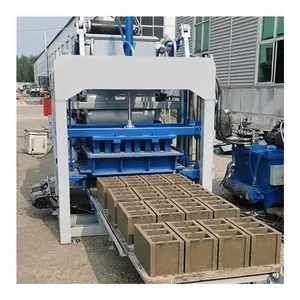













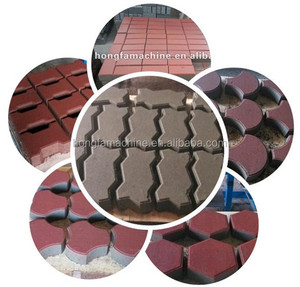
















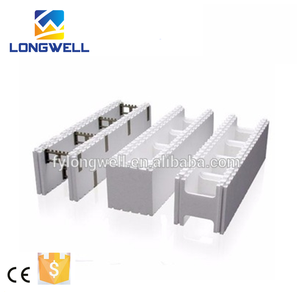






































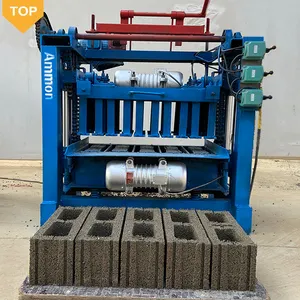





































































































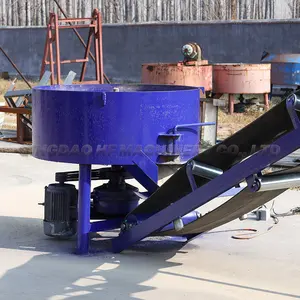











A bricks machine is an industrial machine used to manufacture bricks. It comes in various types. The major types of bricks machines are as follows:
Hydraulic brick press machine
The hydraulic brick press machine uses a hydraulic press to manufacture bricks. It features a hydraulic cylinder, hydraulic pump, and hydraulic control system, among others. The machine feeds material into a mold. Then, the hydraulic cylinder applies force to the material. Consequently, the material compresses into a brick. The machine offers accurate control of pressure and speed. It is suitable for making bricks from various materials, including clay, fly ash, and cement.
Clay brick making machine
A clay brick making machine uses clay as its primary material. It softens the clay, moulds it, and fires it to form bricks. The machine comes in three major types: extruder, fabricated, and press-moulding units. Clay is easily available in some places. The machine offers a cost-effective way to generate an essential building material.
Concrete block making machine
The concrete block making machine creates concrete blocks through four major processes: mixing, moulding, curing, and packing. It mixes the raw materials (cement, water, and aggregates) in the right proportions. Then it moulds the mixture into blocks (the shape and size depend on the kind of mould used). Next, the machine cures the blocks by keeping them in a humid environment at room temperature for a specific period. Finally, it breaks out blocks that have cured and are ready for use or sale. The machine can be manual, semi-automatic, or fully automatic. It is suitable for making concrete blocks and paving stones.
Interlock brick making machine
The interlock brick making machine creates interlocking bricks. These bricks are easy to fit together like puzzles. They can create strong walls without using mortar between each brick. The machine comes in hand-operated to fully automatic models to meet different preferences and needs.
The usefulness of bricks making machines is seen in various industries and sectors that rely on these machines for efficient brick production.
Construction industry
The primary use of bricks' machine production is the construction industry, which uses various bricks produced by the machines for infrastructure development, building construction, road construction, landscaping, and other construction projects. Different types of bricks—such as fly-ash bricks, CLC blocks, and sponge iron bricks—see relevance in the construction industry. Brick Making Machines like the automatic fly-ash brick-making machine can be used to produce these types of bricks. These industries use them for strong, fire-resistant, and sound-proof buildings.
Agriculture and Horticulture
Agriculture and horticulture have often used bricks as a factor employed in the agriculture and horticulture industries, such as in greenhouses and farm infrastructure. These industries sometimes employ CLC bricks and fly-ash blocks, which are regular but may also be used for other nontraditional agricultural purposes, such as sound-proofing, insulating, and also fire-proofing.
Recycling and environmental management
Environmental management concerns recycling usually refer to the machine's ability to recycle concrete waste and produce aggregate used to make blocks and great environmental management choices, reducing waste and improving the environment immensely.
Automotive and Aerospace
While the automotive and aerospace industries don't often use brick machines, specialized machines can produce refractory bricks and other components for high-temperature kilns and aircraft engine turbine factories.
Consider the following factors when determining which bricks maker machine to purchase.
Production capacity
Smaller machines typically produce a few hundred to a thousand bricks daily, while large-scale machines can produce tens of thousands of bricks daily. Choose a machine that can meet the project's needs. Orders will be simple to fulfill, and stock will be plentiful if the machine's capacity exceeds market demand.
Automation and controls
A semi-automated machine will require manual mixing, feeding, and removal of the cured bricks, while a fully automatic machine will handle all of these processes automatically. An automatic brick machine will usually be more expensive than an automatic one, but it will require less manual labor and training. An automatic machine will probably be a more economical choice if a large amount of staff expertise is unavailable.
Types of bricks produced
Some machines can produce only one type of brick. Others are more versatile and can make various bricks, such as interlocking bricks, fly ash bricks, and concrete bricks, if different types of bricks are essential.
Mixing options
Some machines require separate mixers, while in others, the mixing is done in the machine. The more complex the mixing facility, the more bricks that machine can produce.
Availability of spare parts
Check the spare parts availability and service network. Most expensive machines need service personnel who can understand the machine's working in-depth. Some may have so much technology that it is impossible to find technical professionals in some areas.
Quality of bricks
Research the brick machine's quality. The durability and performance of brick machines vary depending on the make and model. Examine user reviews and ratings to make an informed choice. Prioritize machines built with long-lasting, resilient components that provide dependable performance for consistent, high-quality brick production.
Q1. What is the future of brick-making machines?
A1. The future of brick-making machines lies in large-scale automated machines. These will have integrated technology and will be sustainable in all aspects. Smart brick-making machines equipped with robotic arms will make highly complex bricks.
Q2. What are the trends in brick-making machines?
A2. The trend is toward energy-efficient machines that use alternative sources of energy for drying and firing bricks. AI-automated machines are becoming the norm as they increase productivity and reduce labor costs.
Q3. Can bricks-making machines help in climate change?
A3. Yes, machine-made bricks can mitigate climate change. They use waste materials like fly ash, slag, and recycled plastic. The emission of carbon dioxide in the atmosphere can be reduced by using eco-bricks and making them with low-carbon technologies.
Q4. What are the benefits of brick-making machines?
A4. Brick-making machines have revolutionized the production of bricks. The benefits include large-scale production, uniformity, automation, and cost efficiency. Bricks of the same shape and size can be made in a short period.
Q5. How do bricks-making machines impact local economies?
A5. Economies will benefit when bricks-making machines are introduced. Jobs are created because of the jobs of technical operators, maintenance staff, and skilled labor. Local infrastructure will improve, and economies will grow, as machines can produce large numbers of bricks.